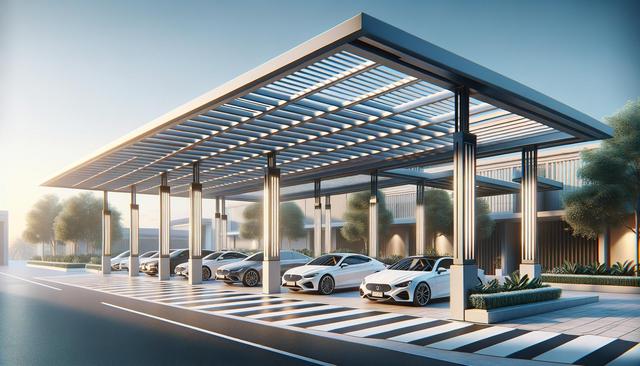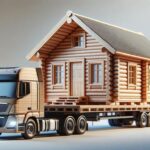Understanding What Carports Are
Carports are semi-covered structures designed primarily to protect vehicles from weather conditions such as rain, snow, and sun exposure. Unlike garages, carports typically do not have four walls. Instead, they may feature one or two sides enclosed, while the others remain open for easy access. This design provides a balance between functionality and affordability. Carports can be freestanding or attached to a building, and they are commonly used in residential, commercial, and even agricultural settings.
The flexibility in their design means that carports can be made using various materials, including metal, wood, and polycarbonate panels. Each material offers different benefits in terms of durability, maintenance, and appearance. Homeowners often choose carports based on their specific needs, such as the number of vehicles to be sheltered or the aesthetic of the property.
Benefits of Installing a Carport
One of the main advantages of carports is their ability to shield vehicles from harmful weather elements. This protection can help extend the lifespan of a car by preventing damage from UV rays, snowfall, or heavy rain. Carports are also known for their versatility. Besides vehicle storage, they can be used for:
- Outdoor gatherings and barbecues
- Storage of boats or RVs
- Covered play areas for children
- Temporary workspace for home projects
Additionally, carports can be a cost-effective alternative to building a full garage. Since they require fewer materials and less labor, they are generally quicker and more affordable to install. Their open design also promotes better ventilation, reducing moisture buildup and the risk of rust or mildew on vehicles.
Types of Carports to Consider
There are several types of carports available, each suited to different needs and preferences. The most common types include:
- Attached Carports: These are connected to an existing structure, typically a house or building, and offer a seamless extension of the property.
- Freestanding Carports: These stand alone and can be placed anywhere on a property, making them flexible and easy to relocate if needed.
- Metal Carports: Known for their durability and low maintenance, metal carports are ideal for long-term use.
- Wood Carports: These offer a more traditional appearance and can be customized to match home aesthetics.
When choosing among these options, consider factors such as the climate in your area, your budget, and how much space you have available. Each type of carport has its own set of advantages that can align with different lifestyles.
Installation and Maintenance Considerations
Installing carports can be a straightforward process, especially when opting for prefabricated kits. These kits typically include all necessary components and instructions, allowing for DIY installation or professional setup. However, before installation, it’s important to check local building codes and obtain any required permits. This ensures compliance with safety standards and avoids potential legal issues.
Maintenance is another key consideration. Most carports require minimal upkeep, particularly those made of galvanized steel or aluminum. Basic maintenance tips include:
- Regularly checking for rust or corrosion
- Cleaning the roof and supports to remove debris
- Tightening bolts and screws as needed
- Inspecting for any signs of wear after storms or high winds
Proper maintenance helps prolong the life of your carport and ensures it continues to offer reliable protection for years to come.
Choosing the Right Carport for Your Needs
Selecting the right carport involves assessing your specific requirements. Start by determining the size needed based on the number and type of vehicles you plan to shelter. Next, consider the style and material that best suits your property and climate. For instance, metal carports are well-suited for areas with heavy snow due to their sturdiness, while wooden carports may be more appropriate for moderate climates where aesthetics are a priority.
It’s also worth exploring customization options. Many manufacturers offer features such as side panels, gutter systems, and enclosed storage areas. These additions can enhance the utility of your carport and tailor it to your lifestyle. Additionally, consider long-term value. While initial costs may vary, investing in a quality structure can reduce future repair expenses and increase property appeal.
Whether you’re looking to protect your daily vehicle, store seasonal equipment, or simply add usable outdoor space, carports offer a practical solution that combines flexibility with function.
Conclusion: A Valuable Addition to Any Property
Carports serve as a versatile and efficient option for vehicle protection and more. Their wide range of styles, materials, and configurations means there’s likely a solution suited to almost any property. From safeguarding your car against the elements to creating extra covered space for outdoor activities, carports bring both practical benefits and potential value enhancements to your home. For those considering a straightforward and affordable way to enhance their property’s functionality, exploring carports is a smart place to start.








